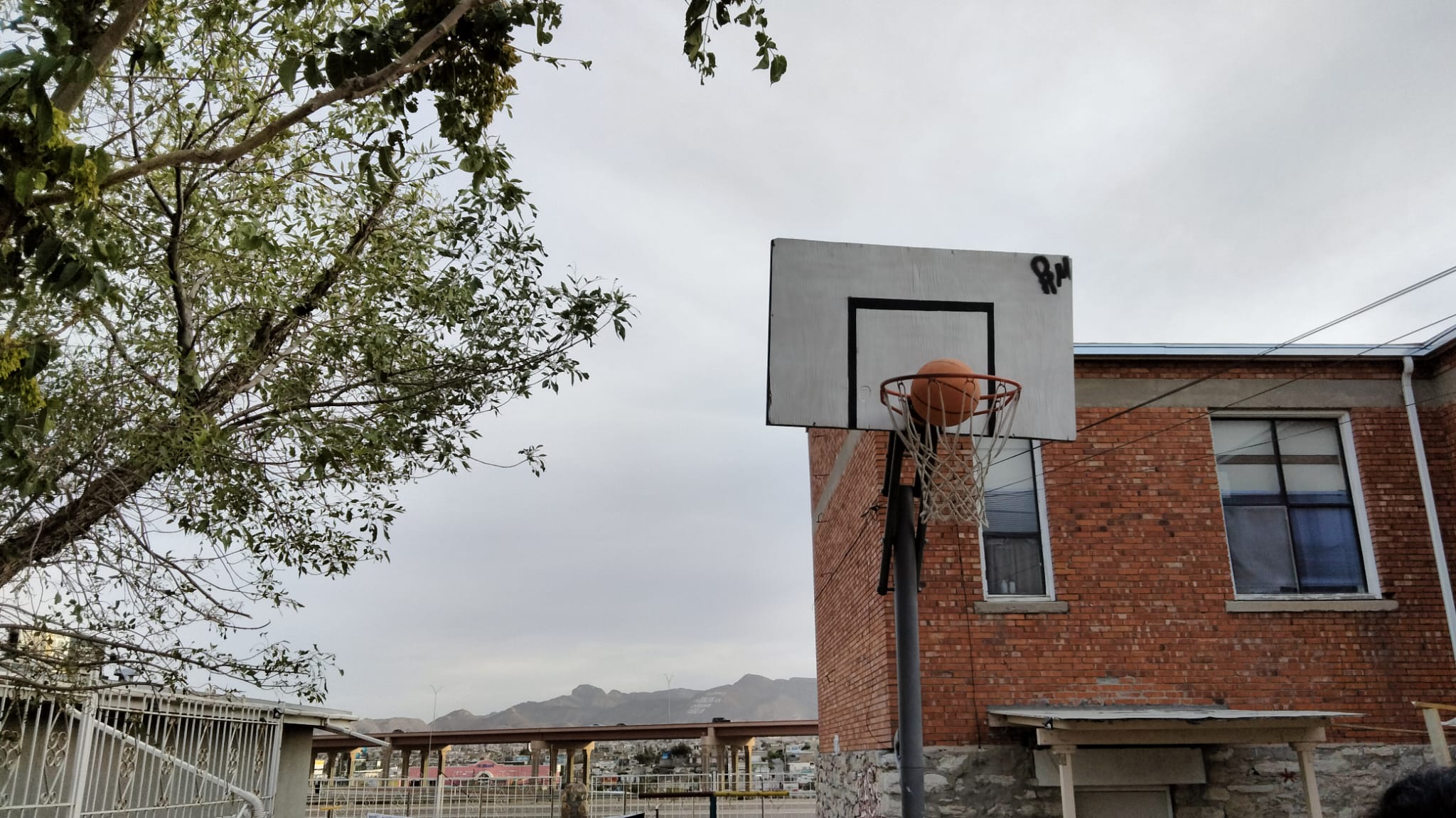Hi friends, my name is Miriam, and I’m from the mountains of North Carolina. I’m a rising senior at Davidson College where my major is Language and Migration Studies. I’ve been working as an intern at Abara for the past six weeks. I’d love to take you for a walk through a couple of the moments I’ve witnessed and experienced this summer.
As part of my work here, I volunteer weekly at a short-term shelter in El Paso. Because families usually only stay for a couple of days before they continue to their final destination, each week I get to meet and spend time with a new group of guests. I go in the evening and help to tidy up, organize spaces, and once I’ve finished, I hang out with the families, which is my favorite part of volunteering. At first I was worried that being in the environment of the shelter would wear me out, but every time I go I leave refreshed and hopeful, which is no doubt because of the people I come across.
I play basketball with the kids as the cement burns our feet and the sun slowly lowers into the evening. I draw all of the flags from Latin America with a girl from Venezuela. I talk with a teenager about what it will be like to learn English. One Venezuelan boy tells me about his perception of each nationality he came across on the journey. I listen to the love story of a couple who met in Ciudad de Mexico and later left because of violence. I try to locate a woman’s husband who was separated from her while they were in ICE custody. I hear about what it’s like to be in the ICE detention center for days or weeks, where they don’t turn the lights off. A mother shares that her relationship with her husband has been strengthened by the year they spent apart, and he has been staying up late to prepare his house to be with his family again. I explain to a woman’s son how to navigate their layover and find their gate in the busiest airport in the US. I share excitement with a young mother who will get to see her husband for the first time in two years, another mother who will see her daughter for the first time in four years. The air is filled with both a sense of relief from the journey and an nervousness about the future.
The first month that I volunteered at the shelter, I served alongside a short-term volunteer. We’ll call him Peter. Peter had his own immigration story from Asia. He spoke Spanish, English, and Indonesian, and on my first day, he asked me to help him teach some of the guests basic English. Peter was in his sixties and wore plaid shirts, khakis, brooks running shoes, and occasionally his bike helmet to protect him from the sun. Peter brought energy and warmth to our space and made me along with all of the guests feel welcomed. Basically, everyone loved Peter, me included.
To begin my first meal with everyone, Peter prayed in Indonesian and then asked me to pray in Spanish. We were a small group so we all fit in one table. At one point during the meal, Peter shared that he likes to go for walks in the evening and asked if anyone wanted to join him after dinner. “Peter, we just walked all the way through Mexico!!” was the response he got. We all laughed.



